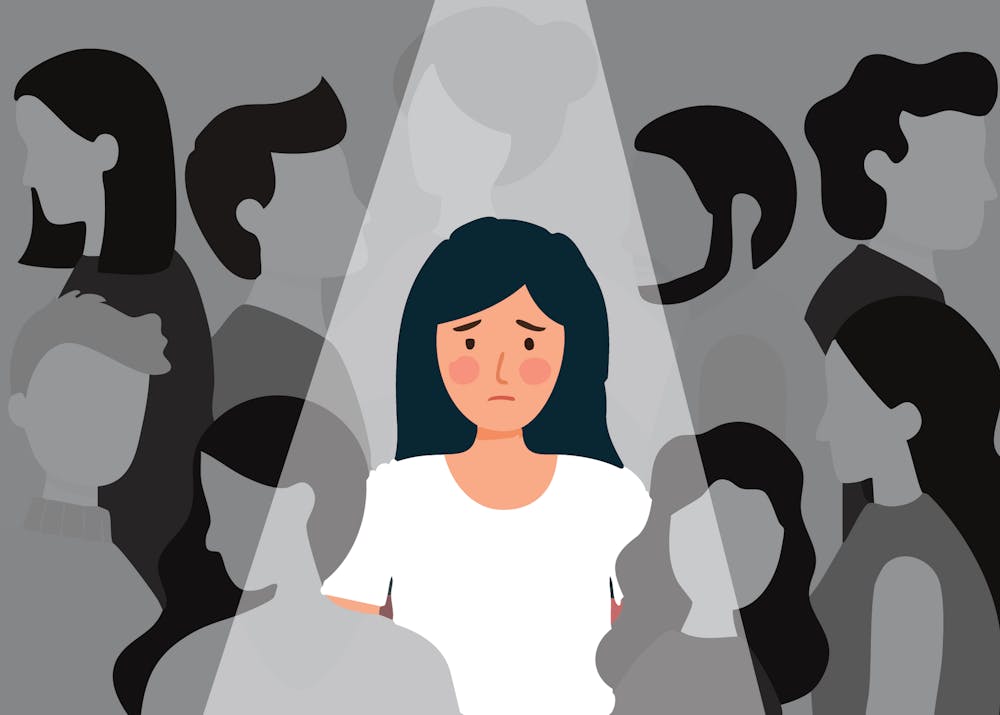“No guilt, no apologies.”
“Protect your peace.”
“You don’t owe anyone an explanation.”
I began noticing these types of phrases this past summer, on posts, in conversations and even in how people talk about relationships. They sounded uplifting – and sometimes they are – but something felt off about it.
The more I thought about it, the more I realized how easily those messages can turn into excuses to stop looking inward. Life moves fast, and most of us don’t have the time or patience to sit and contemplate our negative feelings. So we tell ourselves these things, even when uneasiness leaks out.
Sometimes, we’ll drown ourselves in school or sports, trying to escape what we don’t want to face. We may also vent to friends who will tell us exactly what we want to hear, not what we need to hear. Some even turn that avoidance outwards, breaking meaningful relationships and shutting people out entirely.
Somewhere along the way, the line between healing and hiding got blurry. We’ve gotten good at not finding peace, but constructing illusions of it. We push out regret, sadness and uncertainty, but they don’t go away. Every emotion, no matter how nuanced or uncomfortable, exists for a reason, and therein lies a lesson to be learned.
We rarely see it that way. More and more, it feels like we’ve started pathologizing guilt and pain. We mistake emotions for symptoms and look for quick ways to fix them, as if something must be wrong with us because we feel.
We all do this in different ways. Emotional avoidance often hides behind self-righteous language. We justify what we feel guilty for, just so we don’t have to feel bad. We paint people as toxic, not because it’s true, but because it makes our decisions easier to live with. It’s a lot easier to rewrite a complicated story than to admit we were at fault.
Without catching yourself, you can quickly build up an identity around your wounds. The vultures from the past convince us that we’re always victims of circumstance. But guilt prompts us to do the opposite, and to take ownership.
Of course, mental health matters, but so does accountability. There's nothing noble about refusing to feel bad when you’ve done wrong, and nothing healthy about wallowing in guilt either. It’s about striking that healthy balance of guilt that lies between arrogance and shame.
Guilt hurts, and it’s supposed to – but it’s also a tool. It points to where we fault and where we’re weak, and offers us a chance to grow in those areas. By facing our guilt and mistakes honestly, we can use that pain as a catalyst for actual personal growth.
Enjoy what you're reading?
Signup for our newsletter
If you've hurt someone, genuinely apologize to them. If you've been hurt by someone, forgive them. Recognize where you're not living up to your potential, and take action. It's not easy, but guilt can be harnessed as the exact motivation we need to push past our hesitancies and actually better ourselves.
It’s easier said than done, and I’m still working on this too. It’s a constant battle to resist the human instinct to flee from discomfort, but what’s important is that we try. I invite you to join me in doing just that, in trying to embrace the gift of guilt, because we are not made for comfort, but for greatness.
Jacob Van Riper is a junior business analytics and marketing double major. He is the marketing director at the Miami Catholic Newman Center and a senator for the Associated Student Government. He also serves as chancellor of Oxford’s Knights of Columbus Council 18322, and hosts the metal and rock radio show “Soul Wars” at RedHawk Radio.




